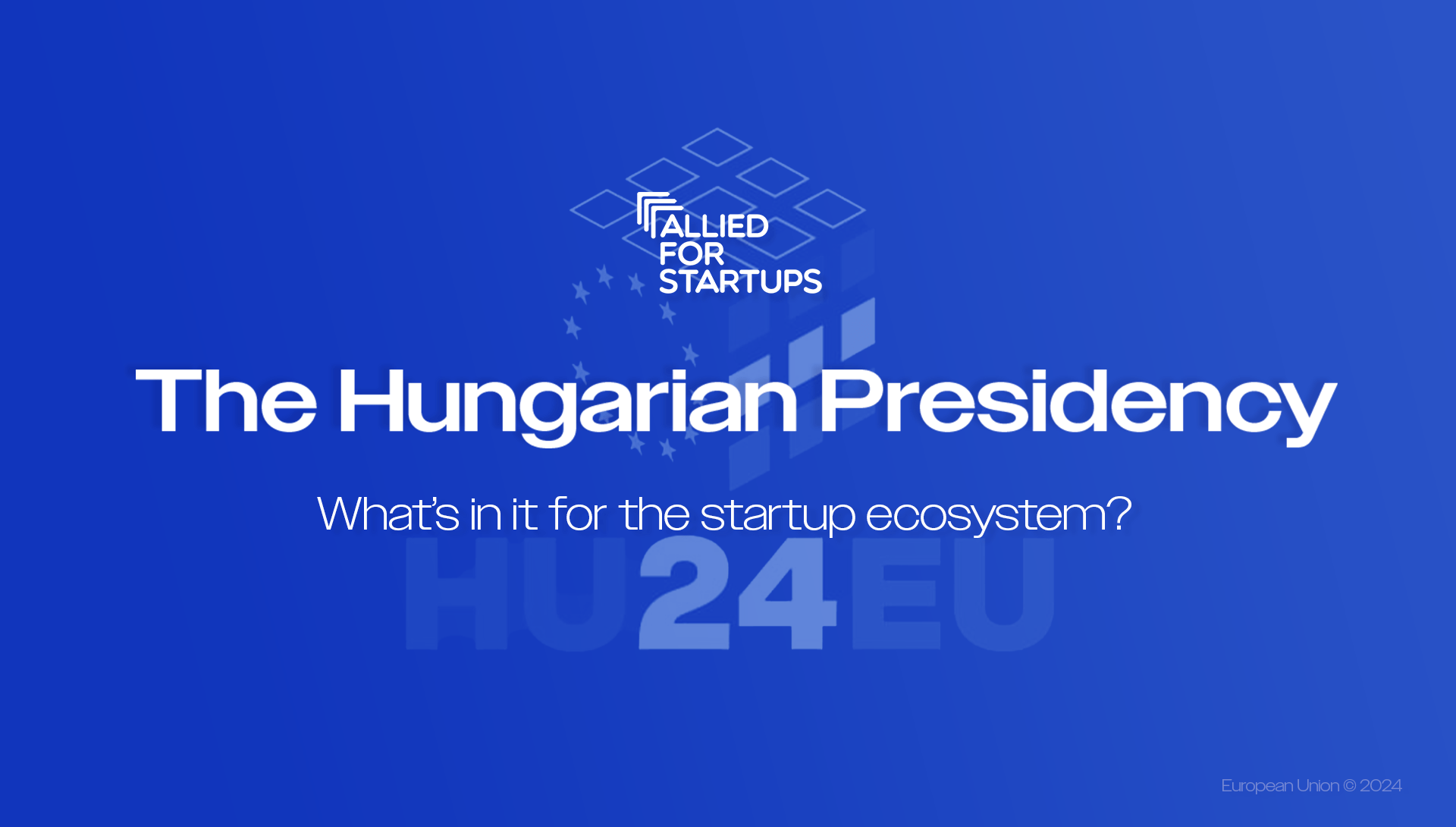From 1 July 2024, Hungary will hold the presidency of the Council until December 2024. As the common denominator among the programme is to boost the EU’s competitiveness, a critical priority is to address the New European Competitiveness Deal, to help restore the European Union’s economy and surpass its global competitors. Additionally, Hungary plans to promote innovation in defence technologies and address demographic and workforce challenges. But what does this new Presidency mean for the startup ecosystem? The Presidency’s focus on startups seems commendable, as initiatives will focus on supporting startups and promoting both green and digital transitions to ensure comprehensive strategies for long-term economic resilience and development across all Member States. Now, let’s have a closer look at this!
Is health covered?
Although health has not been listed as one of the seven priorities of the Hungarian Presidency, the programme underscores several key initiatives in this sector. The Presidency mentions it will continue working on the negotiations to reform the Pharmaceutical Legislation, to ensure Europe will maintain competition in innovative research and development. Building on the success of Europe’s Beating Cancer Plan, there will be a strong focus on the development of new strategies to focus on cardiovascular diseases, rare diseases, and mental health. Additionally, the programme aims to initiate discussion among the Member States on the affordability of medicines.
Although this outcome does not align with the expectation of the health ecosystem, in light of recent news, the Council has urged for the European Commission to keep the European Health Union as one of the priorities in the upcoming five-year term. This entails the strengthening of policy cohesion and addressing current challenges such as health workforce shortages and the limited supply of medicines and medical devices.
What about startups?
Through several positive mentions of startups, the Hungarian Presidency’s programme underscores the vital role that startups and SMEs play in boosting European economic performance and job creation. By recognising the burdens on startups, such as supply chain vulnerabilities, the Presidency is committed to continue developing and enhancing their resilience to crises. This includes efforts to reduce regulatory burdens, improve the quality of related regulations, and introduce supportive measures.
Another approach in strengthening Europe’s competitiveness is through the reform of the Single Market. This aligns with Enrico Letta’s objectives highlighted in his report from April 2024. As discussed in Allied for Startups’ blogpost, the reform of the Single Market will continue to enhance and strengthen the digital ecosystem. There is a keen interest in new strategies that amplify the Digital Single Market, including the implementation of digital labelling to assist both startups and consumers.
In this context, the programme also gives prominence to R&D and innovation. The programme outlines that it is critically important to strengthen the global positions of European science, research, and innovation, to re-establish the EU as a major player in the innovation and technological competition. By addressing the insufficiencies within the functioning of the European innovation system, new opportunities can be provided for startups to commercialise research and innovation development, or to build onto scientific research to further develop their innovative ideas and products.
The Hungarians have even more good news as they are committed to increasing access to finance for startups. One way the Hungarian Presidency sets out to address this is by advancing the discussions on the future of the Capital Markets Union. This way, capital could be unlocked for investment in technological innovations driven by startups. The fact that the Presidency is committed to continuing discussions regarding unlocking the capital for startups and innovation is a hopeful development.
However, the plans for employment and migration policy feel like a mixed bag for startups. Although the startup economy can rejoice over a harmonised visa issuance throughout the Internal Market (tying well with our EU Election Manifesto), addressing labour shortages only within the EU Internal Market may contradict the overarching objective to make the EU more competitive. Startups are the drivers of innovation in the EU, yet they can only live up to their potential if they have sufficient access to skilled talent. When specific labour needs cannot be accessed within the Internal Market, startups should have the opportunity to recruit skilled labour from third countries. Therefore, focusing on the Internal Market only to address labour challenges does not help startups drive their innovations in the EU.
Finally, on telecommunications policy, the Hungarian Presidency sets out to continue the discussion on the future of the European telecommunications sector. This includes adopting Council conclusions that reflect on the white paper of the European Commission. Here, it is critical for startups that net neutrality is maintained and ensured as network fees would stifle innovation, hampering the competitiveness of startups vis-a-vis larger players and harming the EU’s competitiveness relative to third countries.
Conclusion
Hungary takes over the Presidency of the Council of the European Union with an overarching focus on competitiveness. At Allied for Startups, we welcome the hopeful aspects of the programme, and are optimistic that the Presidency can contribute to making progress on shaping a fertile and enabling startup ecosystem in Europe!

